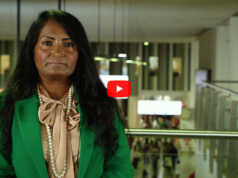
Rafael Bayer (director, Rambam Health Care Campus, Haifa, Israel) is co-chairman of the Innovation in Cardiovascular Intervention (ICI) meeting (14–16 December 2014, Tel Aviv, Israel), which he says is the “premier meeting” for innovation in interventional cardiology. He speaks to Cardiovascular News about unique features of the meeting.
Who is the target audience of the ICI meeting?
The meeting is of interest to interventional cardiologists because they are not just interested in new devices; they also interested in devices that may be coming out in three to four years’ time. Furthermore, many cardiologists have ideas for new devices themselves—in fact, 80% of the devices that have changed the landscape of interventional cardiology in the last four decades were based on an idea from a physician. Physicians are well placed to come up with new ideas because they know the problems with current devices and know what the unmet needs are.
However, the meeting is unique in the field of interventional cardiology because its audience is comprised of engineers and scientists as well as physicians. Companies attend the meeting as well because they want to see what the upcoming trends are in this area. In fact, almost 50% of the companies that attend are start-ups—they are looking for information on how to further develop their products.
Therefore, the meeting provides an opportunity for people from various disciplines to come together to discuss innovative new therapies during an intensive three-day period, which makes it a fruitful ground for new developments in interventional cardiology.
What is the ICI Academy of Innovation?
It is a full-day course held the day before the main meeting that focuses on the steps necessary to develop an idea for a new product into an actual device. We provide information on how to judge if your idea is feasible, the importance of protecting your idea (eg, patenting it), how to get funding to further develop your idea, and also review the long approval process that is required before a new device can be launched on to the market.
What is the technology parade?
This is an opportunity for companies to present their products that are in the early stages of development. They can then get feedback about the potential problems with the products and how they can be improved. The parade is also an opportunity for physicians to learn about upcoming devices and become involved in the clinical studies that are required for getting these devices approved. The clinical trials that are performed before a device is launched on to the market are a fascinating process, and they are a major part of the ICI meeting.
What does the ICI innovation award recognise?
The award is for a company that we believe has developed the most innovative and important concept among the companies presenting their novel products at the meeting. We have a shortlist of companies that were selected from close to 100 companies who present their products during the first day of the meeting and a panel of judges reviewed these products and voted on the winner, who is announced on the last day of the conference.
The 2014 winner was TVA Medical (Austin, Texas) that has developed the FLEX System for vascular access for haemodialysis patients without the need for an open procedure. The procedure creates a fistula between the artery and the vein by means of a magnetic coupling device using magnetic guidewires inserted into the vein and artery in the arm. This is followed by an RF-enabled guidewire that generates a fistula between the two vessels. The award was presented by my co-chairman Chaim Lotan (The Heart Institute, Hadassah University Hospital, Jerusalem, Israel) and me during the plenary session on the second day of the meeting.
This is in line with the really innovative products that won the award in previous years. For example, one device measured the amount of water in patients with heart failure and transmitted this information from wherever the patient was to a hospital. We felt that this could be a good approach for monitoring patients with heart failure at home and reducing hospitalisations.
Are any of the devices that have been presented at previous ICI meeting now used in clinical practice?
Many of the devices reach clinical practice. I will provide an example of a company that I cofounded within the Technion accelerator partnering with Rambam Hospital. Corindus Vascular Robotics, which developed a system for robotic-assisted percutaneous coronary intervention (PCI), presented at our meeting. Their device is now FDA approved and is now being used across in the states.
Also, many of the current transcatheter aortic valve implantation (TAVI) devices and bioresorbable stents were presented at our meeting prior to being approved for clinical practice.
What do you think the next big innovation will be in interventional cardiology?
It is difficult to predict what the “next big thing” will be, but I think transcatheter valve therapies will develop to a stage over the next five years where the majority of patients will be receiving transcatheter valves and only a minority of patients will undergo surgery.
Outside of interventional cardiology, I think the biggest innovation will be interventional therapies for the brain to prevent stroke.













